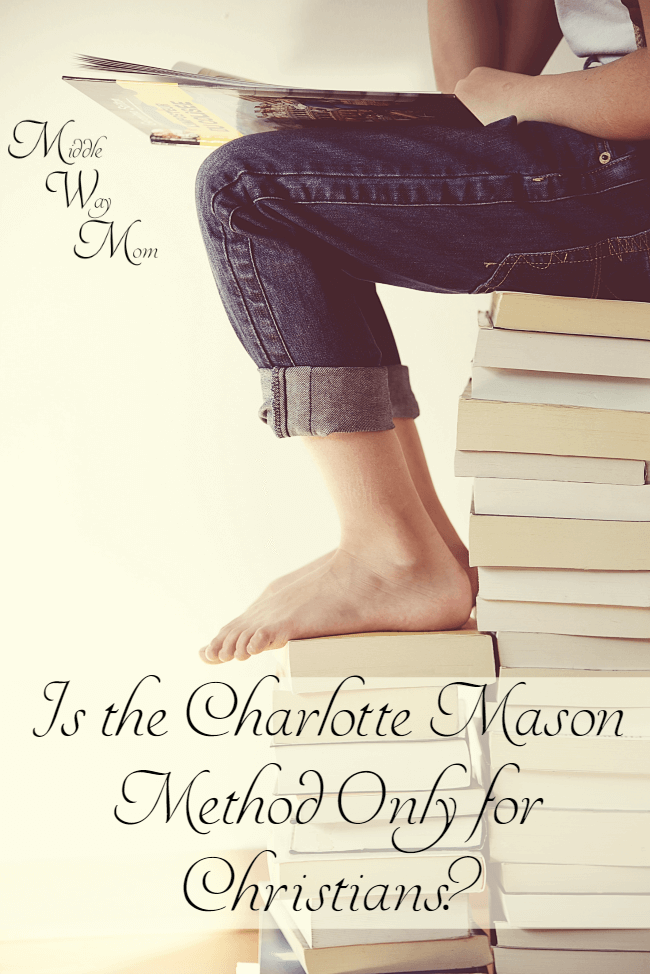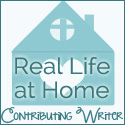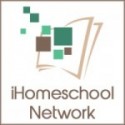“Isn’t Charlotte Mason curriculum Christian?”
“Charlotte Mason books are awfully euro-centric.”
I’ve noticed these two ideas floating around lately and I wanted to address them, in sha Allah.
There are two misconceptions that are weaved into these questions: that the Charlotte Mason method is a curriculum, and that there are Charlotte Mason books.

Is there a Charlotte Mason curriculum?
Sure, you can find curriculum that is based on the Charlotte Mason method, BUT there is not a well defined list of resources provided by Charlotte Mason that are set in stone for grades or stages. In her original works, she does give suggestions for various books, but you’ll notice that she explains why. Many books have also been picked up from the PNEU school records, but when really digging into these records, one will notice that the books change from time to time as new or better books are found.
The Charlotte Mason method is just that – a method. It’s how you use your time, how you use the resources you find, and how you discern which resources you use for your homeschool. While she did author some books, in general there are not “Charlotte Mason school books” unless someone somewhat recently authored them.
Is the Charlotte Mason method for Christians?
Charlotte Mason was a Christian, and her method stems from her beliefs. What I’ve found interesting is how her Christian beliefs translated into how she taught children, and how that differs a little from what we see today. Just as an example, in some of today’s Christian circles, people stay far away from the belief in evolution and some subscribe to the young earth theory (that the world is 10,000ish years old). Charlotte Mason did not find the theory of evolution to contradict her Christian beliefs, as far as we can tell from her writings.
As for how her Christian roots shaped the subjects that were taught, she did focus on Bible studies at the beginning of the day as she wanted to instill in children that their Bible studies were the most important studies of the day. This habit can easily be adapted to our Muslim beliefs as we focus on our Islamic studies first. But mostly, her beliefs shaped her expectations of character and obedience. Things like hymn memorization and singing can be skipped or replaced with nasheeds for the Muslim.
In our homeschool, the habit of starting with religious studies means that we spend a short amount of time working on Qur’an memorization (5-10 minutes. That will lengthen as she gets older), and then we spend the next 10-20 minutes working on a piece of Islamic studies such as stories of the Prophets, du’a, Arabic instruction, tafseer, or names of Allah.
In many ways, Charlotte Mason’s Christian beliefs actually align with our Islamic beliefs quite well. The aspect of the trinity or original sin is not of any effect in her methods, but rather obedience to the divine, learning of nature to have reverence of the the majesty of the creator, and a duty to our creator in the works we do in this world.
Is Charlotte Mason western-centric?
First, let me say that homeschooling in general seems to be western-centric, it’s not just one method. My personal opinion is that since the vast majority of homeschoolers are Christians from European ancestry, the books and curriculum have been written from that viewpoint.
But the truth is that Charlotte Mason’s advice spans any location.
In 1st grade (Year 1 or Form 1B, depending on how you are naming your stages), it’s advised for the child to learn about the heroic age of their own country. In 2nd and 3rd grade they continue with the history of their own country up to the modern day. In Form 2 (4th-6th grade), you add in the history of a neighboring country. You could take this to be a geographically neighboring country, or a country that is important to your family other than the country your student is currently living in. General history, or world history was added as a third history track in later years.
So, by high school, students are covering local history, neighboring history, and general history. There is a lot of history work in the end to make sure you cover all the areas that are important to you.
So yes, what we find is most curriculum lists of homeschool bloggers, or curriculum providers is generally Euro-centric, mostly because the publishers and the majority of the homeschooling demographic is of European origin.
To change this, we have to call on authors from various backgrounds to provide children with engaging, factual accounts of history from many countries and continents.
The investment of the extra effort
While we’re on the topic, let me go on a little tangent with you. Bear with me.
I can tell you that I have spent hundreds of hours searching online to find US History resources that aren’t so white washed. It is a lot of work. There just isn’t a whole lot of high quality options that are written for 7 year olds, but there sure are some fantastic story tellers that tell the history of the US from the premise that Columbus discovered America.
I’m not an author, and as a European-American whose ancestors only came to the US around the turn of the 20th century, all I can do is be a consumer of products to support the authors. I don’t have a lot of personal knowledge or family history to draw from to talk about US history, or world history outside of Europe.
If you know of resources, please share them far and wide. Many of us are looking for high quality, engaging stories to add to our history collections.
Write reviews on Amazon. Make lists on Goodreads, share on Facebook groups. If you find a high quality book that can be used with young children, let everyone you know know about it.
And if you are an author with knowledge in history from the viewpoints of people of color in the colonial years, or know the history of other countries that are underrepresented, then please help the community by publishing what is severely lacking in the homeschooling marketplace.
Want to learn more? Read Charlotte Mason’s original works for first hand knowledge of what the method is all about. You might be surprised!





great read! CM was a great mind, but it is so discouraging to read the “CM curriculum” book lists. I mean some of the books are plain racist. I do not understand how parents do not see the one-sided viewpoints they are promoting. Or perhaps they do and they are fine with that. Anyway, I could go on forever. I will keep your blog in my list to read 🙂
I totally know what you mean. But I think many of us grew up being taught these things, or we think we can talk around them and try to explain it all, but instead I’m hoping we can rise above and create *high quality* children’s literature around US History. It is a desperate need.